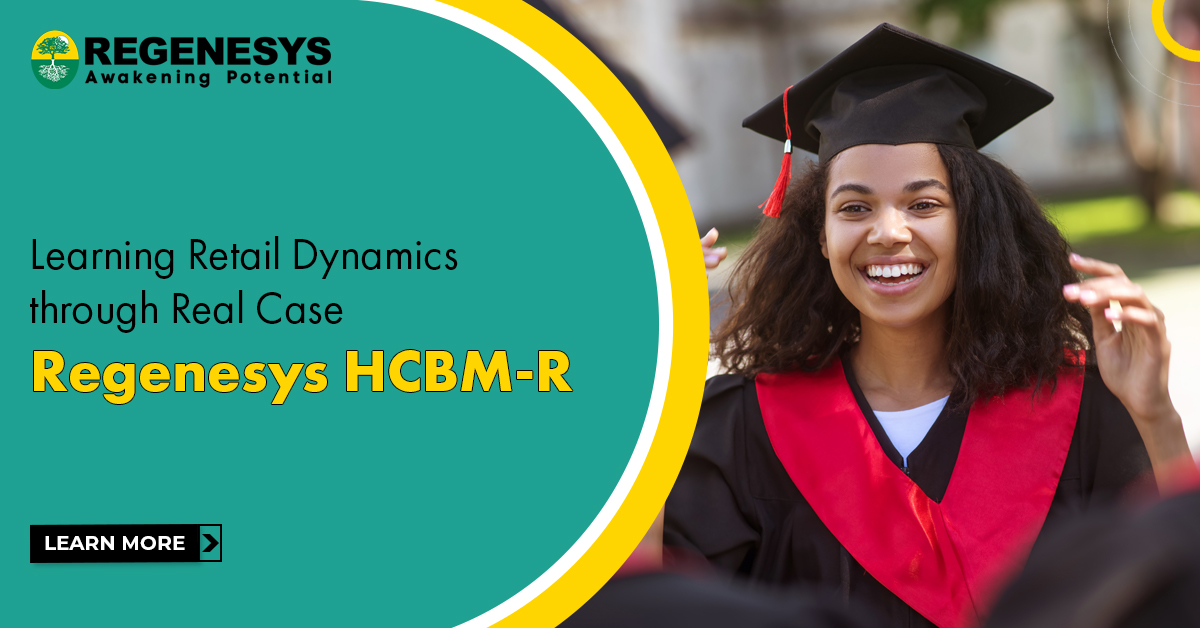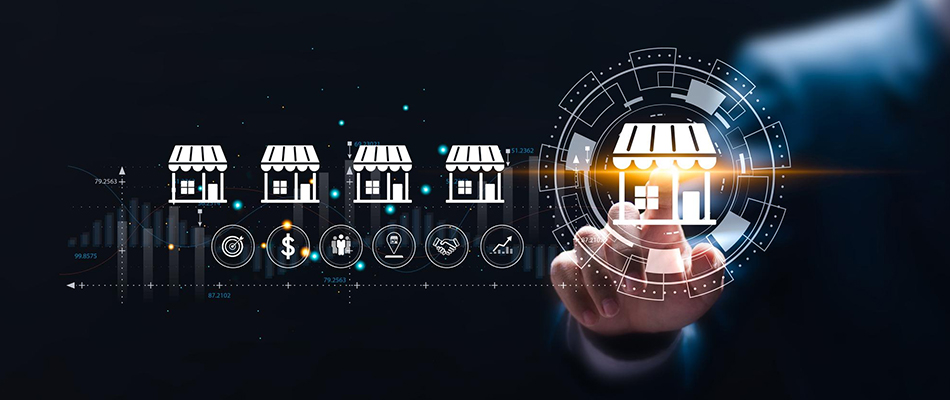In the dynamic realm of Retail Management, theoretical knowledge is just the starting point. The true test lies in applying these concepts to real-world scenarios. Enter the realm of case studies – invaluable tools that bridge the gap between theory and practice. In this comprehensive exploration, we delve into the significance of case studies and their real-world applications in Retail Management, specifically within the Higher Certificate in Business Management in Retail (HCBM-R) programme offered by Regenesys Business School.
Table of Contents
- Understanding of HCBM-R
- Understanding the Role of Case Studies
- Real-world Insights Through Case Studies
- Regenesys: Shaping Future Retail Leaders
- FAQS
Understanding of HCBM-R
This programme is structured to provide a comprehensive understanding of business management principles, with a distinct emphasis on retail operations and management. It encompasses a diverse range of subjects and modules relevant to the retail sector, covering areas such as retail marketing, consumer behaviour analysis, inventory management, customer service strategies, and financial management within a retail context.
The HCBM-R programme aims to prepare students for careers in Retail Management by offering insights into various facets of the retail industry. It combines theoretical learning with practical applications, allowing students to gain hands-on experience through case studies, industry projects, and potentially internships in renowned retail establishments. This exposure helps bridge the gap between academic learning and real-world challenges faced in the retail sector.
Understanding the Role of Case Studies
Case studies serve as powerful teaching tools, allowing students to delve into practical scenarios that mirror actual business challenges. They present multifaceted situations encountered in the retail industry, enabling students to apply their theoretical knowledge to solve complex problems.
- Authentic Learning Scenarios: Case studies replicate genuine business dilemmas, providing students with a glimpse into the complexities faced by retail managers. These scenarios reflect the multifaceted nature of the retail environment, encompassing challenges in areas such as inventory management, customer service, marketing strategies, supply chain logistics, and financial decision-making.
- Application of Theoretical Knowledge: The primary aim of case studies is to bridge the gap between theoretical concepts learned in classrooms and their practical applications in real-world situations. They allow students to apply the theoretical frameworks and models they’ve studied to analyse and solve problems encountered in the retail sector.
- Critical Analysis and Problem-Solving: Engaging with case studies encourages critical thinking and analytical skills. Students are prompted to dissect the presented scenarios, identify key issues, evaluate multiple perspectives, and devise viable solutions. This process nurtures problem-solving abilities vital for effective Retail Management.
- Experiential Learning: Case studies offer a simulated experience of the decision-making process within the retail context. By immersing themselves in these scenarios, students gain practical insights into the complexities and dynamics of retail operations. This experiential learning fosters a deeper understanding of the industry.
- Enhanced Understanding of Real-world Challenges: Analysing case studies helps students comprehend the nuanced challenges faced by retail managers. From addressing customer satisfaction issues to optimising inventory management or devising marketing strategies, case studies shed light on the multifaceted nature of retail operations.
- Preparation for Future Roles: Engagement with case studies equips students with the skills and confidence to navigate similar challenges in their future roles in Retail Management. The experience gained through analysing and strategising in diverse scenarios prepares them to tackle real-time challenges within the retail industry.
Real-world Insights Through Case Studies
Within the HCBM-R programme at Regenesys, case studies play a pivotal role in fostering a deeper understanding of Retail Management. These case studies are meticulously curated to reflect the diverse landscape of the retail industry. From managing inventory and supply chains to devising marketing strategies and addressing customer service issues, case studies encompass multifarious aspects of retail operations.
1. Application of Theoretical Knowledge:
Case studies serve as a practical application of theoretical concepts learned in the classroom. In Retail Management, theories related to marketing, inventory management, customer service strategies, and financial decision-making often find relevance in case studies. By applying these theories to real-world scenarios, students gain a deeper understanding of how theoretical concepts translate into practical solutions within the retail industry.
2. Development of Analytical Skills:
Engaging with case studies nurtures critical thinking and analytical abilities. Students are presented with multifaceted scenarios, requiring them to dissect the issues, evaluate different perspectives, and formulate strategic solutions. This process hones their ability to analyse complex problems and make informed decisions—a skill set crucial for Retail Management professionals facing diverse challenges.
3. Experiential Learning:
Case studies provide a simulated experience of navigating real-life challenges encountered in the retail sector. By immersing themselves in these scenarios, students gain practical insights into managing inventory, addressing customer service issues, devising marketing strategies, and making operational decisions. This hands-on experience prepares them for the dynamic and unpredictable nature of the retail environment.
4. Integration of Interdisciplinary Learning:
Retail Management involves a blend of disciplines, including business, marketing, finance, and human resource management. Case studies integrate these interdisciplinary aspects, offering a holistic view of how various business functions interact within the context of retail operations. This integrated approach enhances students’ ability to comprehend the interconnectedness of different aspects of Retail Management.
5. Practical Preparation for Careers:
The analytical thinking and problem-solving skills honed through case studies prepare students for their future roles in Retail Management. By engaging with diverse scenarios during their academic journey, students develop a repertoire of solutions to address potential challenges they might encounter in their careers. This practical exposure equips them to navigate real-world situations with confidence and competence.
Regenesys: Shaping Future Retail Leaders
At Regenesys Business School, the Higher Certificate in Business Management in Retail (HCBM-R) programme empowers students with a holistic education that combines theoretical learning with practical applications. Case studies and research form integral components, providing invaluable insights and preparing graduates to excel in the ever-evolving landscape of Retail Management.
To learn more about the Higher Certificate in Business Management in Retail at Regenesys, visit Regenesys HCBM-R Programme.
FAQS
Q1: What is the primary focus of the Higher Certificate in Business Management in Retail programme?
A1: The HCBM-R programme focuses on providing students with foundational knowledge and practical skills specific to the retail industry. It covers areas such as retail operations, marketing strategies, customer service, inventory management, and financial principles tailored for retail settings.
Q2: What are the career prospects after completing the HCBM-R programme?
A2: Graduates of the HCBM-R programme can explore various roles within the retail sector, such as Store Manager, Retail Analyst, Assistant Store Manager, Department Manager, or Area Manager. These roles involve overseeing operations, managing teams, implementing strategies, and ensuring customer satisfaction.
Q3: How do case studies benefit students in the HCBM-R programme?
A3: Case studies allow students to apply theoretical knowledge to real-world scenarios encountered in the retail industry. They foster critical thinking and problem-solving abilities and offer practical insights into managing retail challenges, preparing students for future roles in Retail Management.
Q4: Is practical experience included in the HCBM-R programme?
A4: Many institutions integrate practical components, such as internships, industry projects, or case studies, into the curriculum of the HCBM-R programme. These experiences provide students with hands-on exposure to the retail environment, complementing their academic learning.
Q5: Can the HCBM-R programme be pursued through online or distance learning?
A5: Some institutions offer flexible study options for the HCBM-R programme, including online or distance learning formats. These formats cater to individuals who may have work or personal commitments, providing flexibility in accessing programme materials and lectures remotely.







